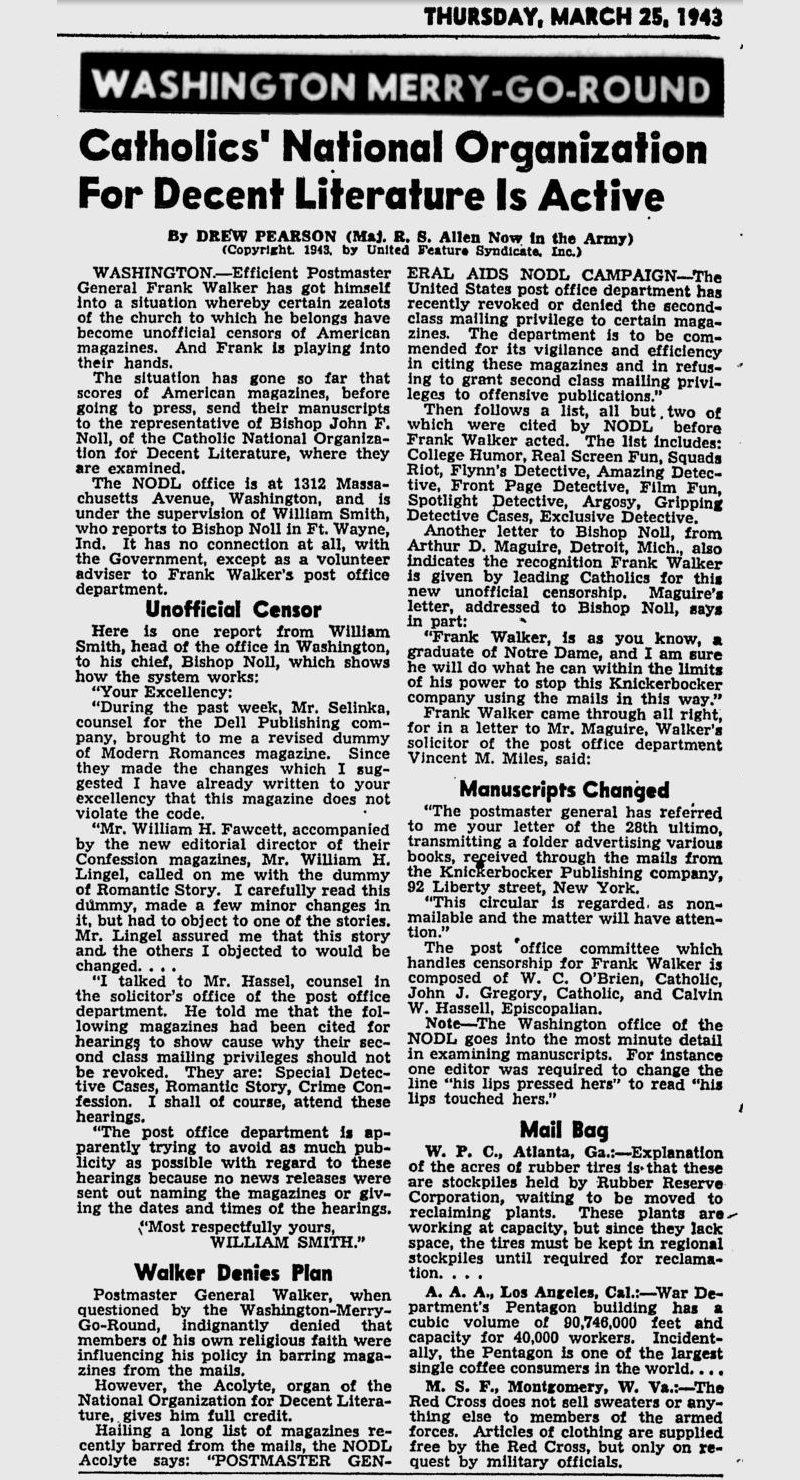Bacchus here fleshes out a bit more the activities of the National Organization for Decent Literature, the role of which in the demise of the shudder pulps he discussed in this post from last Wednesday.
This story from the United Feature Syndicate appeared in the St. Petersburg Times in 1943. It documents “unofficial censors of American magazines” in the form of the Catholic organization the National Organization For Decent Literature. Founded in 1938 (the height of the shudder pulp era), NODL was said to be working closely with the postmaster general (himself a Catholic) by examining “scores of American magazines” on his behalf, advising magazine editors on close edits they must make to satisfy “the code” and communicating with lawyers at the post office about magazines that should or should not have mailing privileges revoked. NODL’s own publication, called the “Acolyte”, cited with approval “a long list of magazines barred from the mails” — which is to say more precisely, denied the subsidized second-class mailing rate. These are pulps, but the era of the shudder pulp is already past, so titles are pulpy but more tame: “College Humor, Real Screen Fun, Squads Riot, Flynn’s Detective, Amazing Detective, Front Page Detective, Film Fun, Spotlight Detective, Argosy, Gripping Detective Cases, and Exclusive Detective.” Again, these are the titles excerpted for the article from a much longer list. To whatever extent that mail distribution was important to what remained of the pulp magazine business by 1943, the NODL campaign combined with postal revocation of mailing privileges seems to have been cutting a large swathe out of that business. The article therefore tends to lend credence to reports that various shudder pulps came under pressure to tone themselves down in the late 1930s to preserve their mailing privileges.

